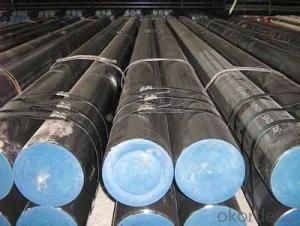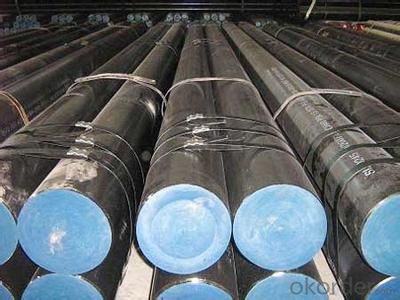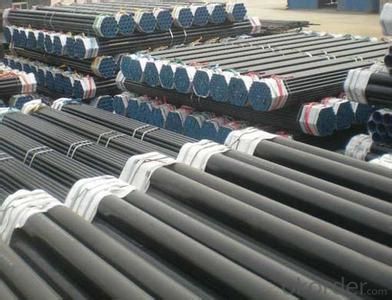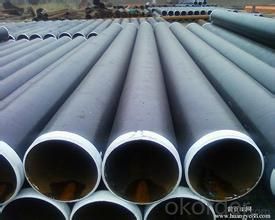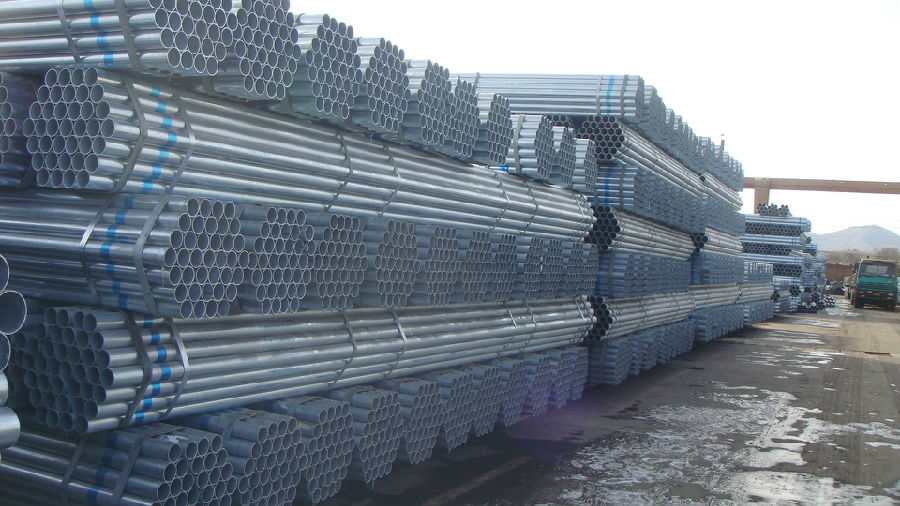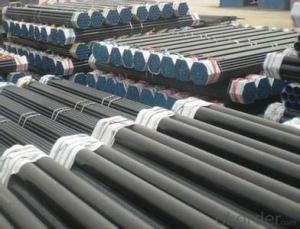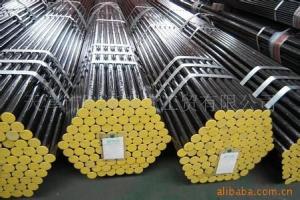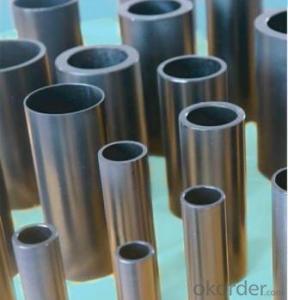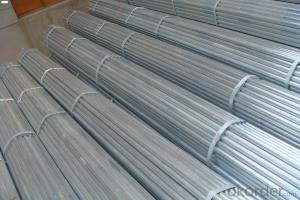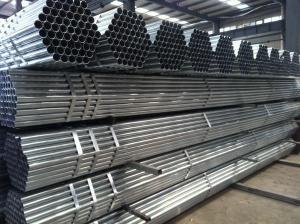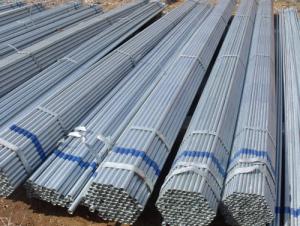Multiple varieties Steel Pipe with High Quality and Best Price Q345
- Loading Port:
- Tianjin
- Payment Terms:
- TT OR LC
- Min Order Qty:
- 30 m.t.
- Supply Capability:
- 8000 m.t./month
OKorder Service Pledge
OKorder Financial Service
You Might Also Like
Product Description:
1、Structure of Steel Pipe Q345 Descrption:
steel welded pipe is actually a cover term, covering a wide range of alloy and making them suitable for different attributes that are used in a very wide and large numbers of different industries. Stainless steel pipe is resistant to erosion, highly flexible, powerful, easy to use, and can be done in distinct approaches, which means that more and more stainless steel was used as a construction material for large-scale, high impact buildings. It can be molded, rolling, and it can create amazing shapes to make it perfect, It is used as experimental buildings, The use of steel pipe welding of large stainless steel covers other examples.
2、Main Features of the Steel Pipe Q345:
·Highly demanded
·Durable
·Reliable
·resist corrosion
·reasonable price
3、Steel Pipe Q345 Images:
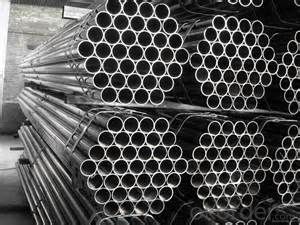
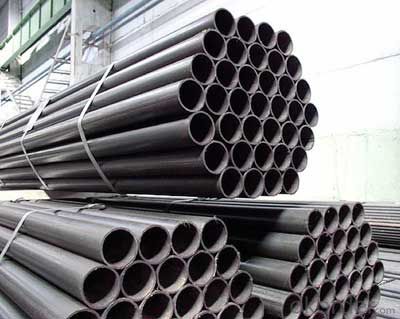
4、The Steel Pipe Q345 Specification:
Standard JIS, DIN, ASTM
JIS G3445-2006, JIS G3444-2006, JIS G3446-2004, DIN EN 10216-1-2004, DIN EN 10217-1-2005, DIN EN 10305, ASTM A106-2006, ASTM A53-2007, ASTM A789-2001, ASTM A1020-2002, ASTM A179-1990, ASTM A199Grade Cr-Mo alloy, Mo, ST35-ST52, Q195-Q345, CrNi alloy
15CrMo, 10CrMo910, 30CrMo, 15Mo3, 16Mo, St37, St52, St42, St45, Q235, Q345, Q195, Q215, Cr17Ni8, 1Cr13Mn9Ni1NThickness 2 - 50 mm Section Shape Round Outer Diameter 10 - 900 mm Secondary Or Not Non-secondary Application Structure Pipe Technique EFW Certification API Surface Treatment Paint Special Pipe API Pipe Alloy Or Not Non-alloy
Specifications
1.W.T from 2mm to 70mm
2.OD from 10 to 1200mm
3.product by our own factory
4.on time dilivery
5、FAQ of Square Tube:
①How is the quality of your products?
Our products are manufactured strictly according to national and internaional standard, and we take a test
on every pipe before delivered out. If you want see our quality certifications and all kinds of testing report, please just ask us for it.
Guaranteed: If products’ quality don’t accord to discription as we give or the promise before you place order, we promise 100% refund.
②How about price?
Yes, we are factory and be able to give you lowest price below market one, and we have a policy that “ for saving time and absolutely honest business attitude, we quote as lowest as possible for any customer, and discount can be given according to quantity”,if you like bargain and factory price is not low enough as you think, just don’t waste your time.Please trust the quotation we would give you, it is professional one.
③Why should you chose us?
Chose happens because of quality, then price, We can give you both.Additionally, we can also offer professional products inquiry, products knowledge train(for agents), smooth goods delivery, exellent customer solution proposals.Our service formula: good quality+good price+good service=customer’s trust
SGS test is available, customer inspection before shipping is welcome, third party inspection is no problem.
- Q: What is the role of steel pipes in the telecommunications industry?
- Steel pipes play a crucial role in the telecommunications industry as they are used for the installation of underground and overhead telecommunication cables. These pipes provide protection and support to the cables, ensuring their safety and longevity. Additionally, steel pipes are also used in the construction of communication towers and infrastructure, making them an essential component in establishing and maintaining reliable telecommunications networks.
- Q: Can steel pipes be used for scaffolding?
- Yes, steel pipes can be used for scaffolding. They are commonly used in construction projects as they provide strength, durability, and stability required for supporting workers and materials at elevated heights. Steel pipes are known for their load-bearing capacity and can be easily assembled and disassembled, making them a suitable choice for scaffolding systems.
- Q: How do steel pipes compare to other materials like PVC or copper?
- There are several advantages to using steel pipes compared to materials like PVC or copper. Firstly, steel pipes are known for their strength and durability. They can withstand high pressure and extreme temperatures without cracking or bending, making them ideal for heavy-duty applications such as industrial piping systems or underground installations. Secondly, steel pipes have excellent corrosion resistance. Unlike copper pipes that can corrode over time, steel pipes are typically coated with anti-corrosive materials like zinc or epoxy. This protective layer prevents rust and ensures a longer lifespan for the pipes. Furthermore, steel pipes offer superior fire resistance compared to PVC or copper. They are non-combustible and can withstand high temperatures for extended periods without deforming or releasing toxic gases. This makes steel pipes a safer option for applications where fire hazards are a concern. In terms of cost, while steel pipes may initially be more expensive than PVC, they offer better long-term value due to their durability and longevity. On the other hand, copper pipes can be quite expensive and are susceptible to theft due to their scrap value. Lastly, steel pipes are highly versatile and can be used in various applications such as water supply, sewage systems, gas pipelines, and oil refineries. They can handle high volumes of fluid with ease and are resistant to external factors like UV rays or physical impacts. Overall, steel pipes are a reliable and efficient choice for many industries and applications, offering strength, durability, corrosion resistance, fire resistance, and versatility that sets them apart from materials like PVC or copper.
- Q: How are steel pipes used in the construction of railways and transportation systems?
- Steel pipes are commonly used in the construction of railways and transportation systems for various purposes. One major use of steel pipes in these applications is for the construction of bridges and tunnels. Steel pipes are often used as structural components in the construction of bridges, providing support and stability to the overall structure. In tunnels, steel pipes are used as ventilation shafts, allowing for the circulation of air and removal of fumes, thus ensuring the safety of passengers and workers. Additionally, steel pipes are used for the construction of railway tracks. They are used as supports for the tracks, providing a stable base for the trains to travel on. Steel pipes used in railway tracks are typically coated or galvanized to protect them from corrosion and ensure their longevity. Moreover, steel pipes are used for drainage systems in railway stations and transport hubs, ensuring proper water management and preventing flooding. Another important application of steel pipes in transportation systems is for the construction of signposts and streetlights. Steel pipes are often used as the main structural element in these structures, providing strength and durability. They can be easily fabricated and shaped to meet the specific design requirements, making them a popular choice for these applications. Overall, steel pipes play a crucial role in the construction of railways and transportation systems by providing structural support, ensuring proper ventilation, facilitating drainage, and serving as the main components in various structures. Their strength, durability, and versatility make them an ideal choice for these applications, contributing to the safe and efficient operation of transportation networks.
- Q: Can steel pipes be used for underground transportation tunnels?
- Yes, steel pipes can be used for underground transportation tunnels. Steel pipes are commonly used in the construction of underground tunnels for various purposes such as transporting water, gas, and sewage. They are known for their durability, strength, and resistance to corrosion, making them suitable for underground applications. Steel pipes can withstand the weight and pressure exerted by the surrounding soil and can be reinforced to ensure stability. Additionally, steel pipes can be manufactured in various sizes and lengths, allowing for flexibility in tunnel design. However, it is essential to consider factors such as soil conditions, load-bearing capacity, and potential environmental impacts when deciding to use steel pipes for underground transportation tunnels.
- Q: How do you calculate the pipe flow rate for steel pipes?
- To calculate the pipe flow rate for steel pipes, you will need to consider various factors. Firstly, determine the inside diameter of the pipe, typically denoted as D. Next, measure the length of the pipe, denoted as L. Additionally, you will need to know the pressure drop, ΔP, across the pipe and the fluid density, ρ. Once you have this information, you can use the Darcy-Weisbach equation or the Hazen-Williams equation to calculate the flow rate. The Darcy-Weisbach equation is commonly used for pipes with turbulent flow, while the Hazen-Williams equation is often used for pipes with laminar flow. For the Darcy-Weisbach equation, the formula is: Q = (π/4) * D^2 * √(2ΔP/ρ) Where Q is the flow rate in cubic meters per second, D is the inside diameter of the pipe in meters, ΔP is the pressure drop across the pipe in pascals, and ρ is the fluid density in kilograms per cubic meter. For the Hazen-Williams equation, the formula is: Q = C * (D^2.63) * (ΔP^0.54) * (L^0.63) Where Q is the flow rate in cubic meters per second, D is the inside diameter of the pipe in meters, ΔP is the pressure drop across the pipe in pascals, L is the length of the pipe in meters, and C is the Hazen-Williams coefficient which depends on the roughness of the pipe. To accurately calculate the pipe flow rate, it is important to ensure that the units of measurement are consistent throughout the calculation. Additionally, it is crucial to have accurate measurements of the inside diameter, length, pressure drop, and fluid density to obtain reliable results.
- Q: What is the role of steel pipes in the renewable energy sector?
- Steel pipes play a crucial role in the renewable energy sector as they are commonly used for transporting various fluids, including water, steam, and gases, in renewable energy systems. They are extensively utilized in the construction of wind turbines, solar power plants, and geothermal installations. Steel pipes are employed for the transportation of water in hydroelectric power plants and for the transmission of heat in concentrated solar power systems. Additionally, they are instrumental in the distribution and storage of fuels such as hydrogen and biogas, which are vital components of renewable energy technologies. Overall, steel pipes provide a reliable and durable means of transporting resources and energy within the renewable energy sector.
- Q: Can steel pipes be used for underground sewer lines?
- Indeed, underground sewer lines can certainly utilize steel pipes. Given their robustness, resilience, and resistance against corrosion, steel pipes are widely employed in sewer systems. They possess the capacity to withstand the immense burden of soil and external forces, rendering them highly suitable for subterranean purposes. Moreover, steel pipes boast an extended lifespan and excel in efficiently conveying wastewater and sewage over numerous years. However, it remains crucial to guarantee the appropriate coating or lining of these steel pipes to avert corrosion and further elongate their durability.
- Q: How are steel pipes used in the manufacturing of solar power systems?
- Steel pipes are used in the manufacturing of solar power systems primarily for structural support and to house electrical wiring. They provide a sturdy framework for mounting solar panels, ensuring stability and durability. Additionally, steel pipes are utilized for underground wiring installations, protecting the electrical connections within the solar power system.
- Q: How are steel pipes used in the manufacturing of power distribution systems?
- Steel pipes are commonly used in the manufacturing of power distribution systems as they provide a reliable and durable solution for transporting and protecting electrical cables. They are used to create conduits that house the cables, ensuring safe and efficient transmission of electricity throughout the system. Steel pipes also offer resistance to corrosion, fire, and extreme weather conditions, making them a suitable choice for power distribution systems.
Send your message to us
Multiple varieties Steel Pipe with High Quality and Best Price Q345
- Loading Port:
- Tianjin
- Payment Terms:
- TT OR LC
- Min Order Qty:
- 30 m.t.
- Supply Capability:
- 8000 m.t./month
OKorder Service Pledge
OKorder Financial Service
Similar products
Hot products
Hot Searches
Related keywords
